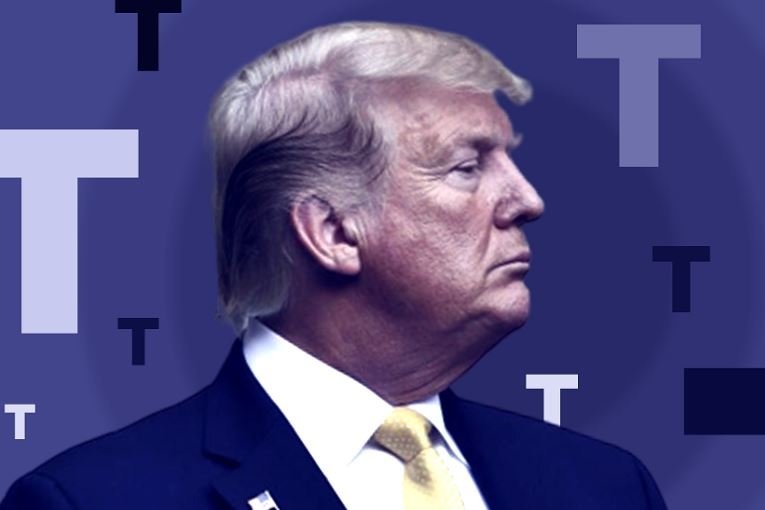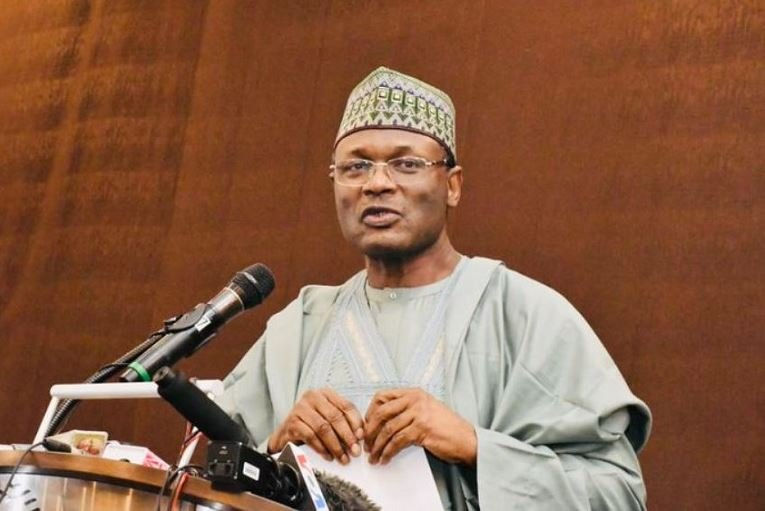Donald Trump’s social-media platform, Truth Social, has launched, in a limited form, on the US Apple App Store.
The app had similarities to Twitter, commentators noted – Mr Trump was banned from Twitter, Facebook and YouTube last year.
And some early users had difficulties registering accounts.
Project lead and former congressman Devin Nunes said it was expected to be fully operational by the end of March.
Some of those trying to register had been told: “Due to massive demand, we have placed you on our waitlist,” the Reuters news agency reported.
Created by the year-old Trump Media & Technology Group (TMTG), Truth Social had previously been made available to about 500 beta testers.
Last week, Donald Trump Jr shared a screenshot of his father’s first “truth” on the social network: “Get ready. Your favourite president will see you soon.”
Truth Social has already had one update for “bug fixes”, according to the App Store, and is now on version 1.0.1.
Last autumn, pranksters discovered a test version of the app website and, according to the Washington Post, adopted the username donaldjtrump.
Twitter banned the former president following the 6 January 2021 US Capitol riot, saying he had broken its rules on the glorification of violence.
And commentators have highlighted, among other things, Truth Social buttons that resemble those relating to Twitter’s reply, retweet and “like” functions.
Time for some Truth!!! pic.twitter.com/jvyteDb5gW
— Donald Trump Jr. (@DonaldJTrumpJr) February 15, 2022
Big tech
On its website, Truth Social describes itself as a “‘big tent’ social-media platform that encourages an open, free and honest global conversation without discriminating against political ideology”.
Mr Trump wants Truth Social to champion “free speech” and eschew the “censorship” of sites such as Twitter and Facebook.
It is a common view among conservatives Silicon Valley social-media companies are curtailing free speech by removing posts and users.
“We cannot use any of the big tech companies,” Mr Nunes, who resigned from Congress in December to become TMTG’s chief executive, told the conservative Newsmax network.
“So we’re having to build this from scratch.”
Frozen out
Mr Nunes has vowed Truth Social will be a “censorship-free experience”.
But any social-media platform on the App Store, and Google Play, has to remove content that breaks the rules.
And a truly uncensored platform would soon be frozen out.
At his zenith on Twitter, Mr Trump had more than 88 million followers.
But none of the other alternative platforms presenting themselves as censorship free, such as Gettr, Parler, Gab and Rumble, has attracted audiences comparable to those of the big social networks.
Companies such as Twitter “have had years to develop their platforms and build their audiences”, points out Darrell West, a senior technology innovation fellow at the Brookings Institution think tank.
“I just think he’s going to discover it’s a lot harder than he realises,” he said.
“If this were easy, I think he would have done this six months ago.”
‘Very difficult’
Last year, Apple and Google removed Parler from their stores, for failing to take down posts they said threatened violence and contained illegal activity.
It was allowed back but only once it had agreed to Apple and Google’s terms of service.
“There simply is no way to avoid big tech,” Mr West says.
“Even if he has his own platform, if he’s violating their terms of service, they could basically push his app out of their app store, which would make it very difficult for him to build an audience.”
‘People worry’
Gettr, which also advocates “free speech” and looks like Twitter, was founded last year by Mr Trump’s former adviser and spokesman Jason Miller.
“It’s not like there’s the dummies’ guide to creating a social-media platform,” he told BBC News.
“You’ve got to find good talent.
“And quite frankly, there are a lot of people who are just scared… because people worry what it’s going to be like if I have something on my resume that challenges one of the big tech companies.”
Truth Social will also have to be robust enough to repel hackers.
“We have so many people who don’t want to see us be successful… even foreign governments and other bad actors,” Mr Nunes said.











